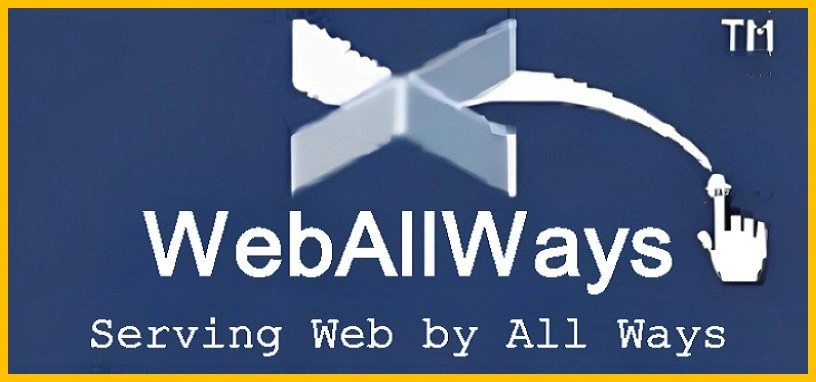
Whether you’re a business owner, a marketing manager, or simply someone keen to understand the ins and outs of search engine optimization, you’ve come to the right place. In this comprehensive guide, we’ll cover everything from the basics of SEO to advanced strategies that can help your website climb the search engine rankings. Let’s dive in!
What is SEO?
SEO, or Search Engine Optimization, is the practice of optimizing a website to improve its visibility on search engines like Google, Bing, and Yahoo. The ultimate goal is to attract organic (non-paid) traffic to your site. SEO involves various strategies and techniques designed to improve your site’s rankings in search engine results pages (SERPs).
Key Elements of SEO
- Search Engines: Understanding how search engines work is fundamental to effective SEO.
- Algorithms: Search engines use algorithms to determine which pages rank higher for specific queries.
- Ranking Factors: Hundreds of factors influence rankings, including keywords, content quality, and backlinks.
Why is SEO Important?
SEO is crucial for businesses of all sizes. Here’s why:
- Increased Visibility: Higher rankings lead to more visibility, which translates into more traffic.
- Credibility and Trust: Websites that rank higher are often perceived as more credible and trustworthy.
- Cost-Effective: Compared to paid advertising, SEO offers long-term benefits and a higher return on investment (ROI).
- User Experience: Good SEO practices improve the overall user experience, leading to better engagement and conversions.
Key Components of SEO
SEO can be broadly categorized into three main components: On-Page SEO, Off-Page SEO, and Technical SEO. Let’s explore each of these in detail.
On-Page SEO
On-Page SEO refers to all the measures you can take directly within your website to improve its position in the rankings. Key elements include:
- Title Tags: Crafting compelling and relevant title tags that include target keywords.
- Meta Descriptions: Writing clear and concise meta descriptions that entice users to click.
- Headings (H1, H2, H3): Structuring your content with proper headings for better readability.
- URL Structure: Using SEO-friendly URLs that reflect the content of the page.
- Image Optimization: Properly tagging images with alt text and ensuring they’re compressed for faster loading times.
- Internal Linking: Creating a network of links within your site to guide users and search engines.
Off-Page SEO
Off-Page SEO involves activities conducted outside of your own website to impact your rankings within search engine results. Key strategies include:
- Backlinks: Earning links from reputable sites to enhance your domain authority.
- Social Media Marketing: Promoting your content on social platforms to drive traffic and engagement.
- Influencer Outreach: Collaborating with influencers to expand your reach and build credibility.
- Guest Blogging: Writing articles for other websites to create backlinks and drive traffic.
Technical SEO
Technical SEO focuses on improving the technical aspects of a website. This ensures that search engines can crawl and index your site effectively. Important elements include:
- Site Speed: Optimizing page load times to enhance user experience and reduce bounce rates.
- Mobile Friendliness: Ensuring your site is responsive and performs well on mobile devices.
- XML Sitemaps: Creating and submitting sitemaps to help search engines understand your site structure.
- Robots.txt: Using this file to guide search engines on which pages to crawl.
- SSL Certificate: Securing your site with HTTPS for better security and trustworthiness.
Keyword Research
Keyword research is the foundation of any successful SEO strategy. It involves identifying the search terms your target audience uses to find products or services. Here’s how to conduct effective keyword research:
Steps for Effective Keyword Research
- Brainstorm Topics: Start with broad topics relevant to your business.
- Use Keyword Tools: Tools like Google Keyword Planner, Ahrefs, and SEMrush can help identify search volume and competition.
- Analyze Competitors: Look at what keywords your competitors are ranking for to identify gaps and opportunities.
- Consider Long-Tail Keywords: These are less competitive phrases that can attract highly targeted traffic.
- Assess Intent: Understand the intent behind the keywords (informational, navigational, transactional) to create content that meets user needs.
Implementing Keywords
Once you’ve identified your keywords, it’s time to implement them throughout your content:
- Natural Integration: Use keywords naturally in your content to maintain readability.
- Content Titles and Headers: Include primary keywords in titles and subheaders.
- Image Alt Tags: Use relevant keywords in your image alt text for better optimization.
Content Creation and Optimization
Content is at the heart of SEO. High-quality, relevant content attracts visitors and encourages them to stay longer on your site. Here’s how to create and optimize content effectively:
Creating Quality Content
- Focus on Value: Create content that solves problems and adds value to your audience.
- Engaging Formats: Use various content formats, including articles, videos, infographics, and podcasts.
- Regular Updates: Keep your content fresh and updated to maintain relevance.
Optimizing Content for SEO
- Use Keywords Strategically: Incorporate keywords in a way that feels organic.
- Optimize for Featured Snippets: Structure content to answer common questions concisely.
- Utilize Internal and External Links: Link to your own content and reputable external sources.
Link Building Strategies
Link building is a crucial aspect of Off-Page SEO that helps establish your site’s authority. Here are effective strategies for building quality backlinks:
Strategies for Effective Link Building
- Guest Blogging: Write articles for reputable blogs in your niche.
- Resource Pages: Reach out to websites with resource pages to include your content.
- Broken Link Building: Find broken links on other sites and suggest your content as a replacement.
- Content Promotion: Use social media and email marketing to promote your best content.
- Networking: Build relationships with other bloggers and industry professionals.
Measuring Link Quality
Not all links are created equal. Focus on acquiring links from:
- High Domain Authority Sites: Aim for links from sites with high authority.
- Relevant Niches: Ensure the linking site is relevant to your industry.
Local SEO
For businesses with a physical presence, Local SEO is essential. It helps your business appear in local search results and attract nearby customers. Here’s how to optimize for local search:
Key Local SEO Strategies
- Google My Business: Create and optimize your Google My Business profile.
- Local Keywords: Incorporate local keywords into your content and meta tags.
- NAP Consistency: Ensure your Name, Address, and Phone number are consistent across all platforms.
- Customer Reviews: Encourage customers to leave reviews and respond to them to build trust.
- Local Citations: List your business in local directories and websites.
SEO Tools and Resources
To effectively implement your SEO strategy, utilizing the right tools is essential. Here are some must-have tools for SEO professionals:
Essential SEO Tools
- Google Analytics: Track website traffic, user behavior, and conversions.
- Google Search Console: Monitor your site’s presence in Google search results.
- Ahrefs: Analyze backlinks, keyword rankings, and site performance.
- SEMrush: Conduct competitive analysis and keyword research.
- Yoast SEO: Optimize your WordPress site for SEO.
Additional Resources
- SEO Blogs: Follow authoritative blogs like Moz, Search Engine Journal, and Backlinko for the latest insights.
- Online Courses: Invest in courses from platforms like Coursera or Udemy to deepen your knowledge.
Measuring SEO Success
To know if your SEO efforts are paying off, it’s vital to measure success. Here are key metrics to track:
Important SEO Metrics
- Organic Traffic: Monitor the number of visitors arriving from search engines.
- Keyword Rankings: Keep track of how your keywords are performing over time.
- Bounce Rate: Analyze how many visitors leave your site without engaging.
- Conversion Rate: Measure the percentage of visitors completing desired actions (purchases, sign-ups).
- Backlink Profile: Assess the number and quality of backlinks pointing to your site.
Future of SEO
SEO is ever-evolving, influenced by changing algorithms and user behaviors. Here’s what the future holds:
Trends to Watch
- Voice Search Optimization: As more users rely on voice assistants, optimizing for voice search will become crucial.
- AI and Machine Learning: Understanding user intent will rely heavily on AI advancements.
- Mobile-First Indexing: With mobile searches on the rise, ensuring your site is mobile-friendly is essential.
- Video Content: Engaging video content will continue to dominate search results.
WebAllWays’ SEO Services
At WebAllWays, we offer a comprehensive suite of SEO services tailored to meet your business needs. Here’s a glimpse of what we provide:
Our Offerings
- SEO Audits: In-depth analysis of your website’s SEO performance, identifying strengths and areas for improvement.
- Keyword Research and Strategy: Comprehensive keyword research to guide your content strategy.
- On-Page Optimization: Tailored recommendations for optimizing your website’s on-page elements.
- Content Creation: High-quality, SEO-optimized content that resonates with your audience.
- Link Building Services: Effective link-building strategies to enhance your site’s authority.
- Local SEO: Targeted strategies to boost your visibility in local search results.
- Monthly Reporting: Regular reports detailing your website’s performance, insights, and recommendations.
Conclusion
SEO is an ongoing process that requires dedication, strategy, and continuous learning. With the right approach and tools, you can significantly improve your online visibility and attract the right audience to your website.
At WebAllWays, we’re committed to helping you navigate the world of SEO. Whether you’re starting from scratch or looking to enhance your existing strategy, our team of experts is here to support you every step of the way. Let’s work together to achieve your digital marketing goals!
If you have any questions or would like to learn more about our services, don’t hesitate to reach out. Your success is our mission!
